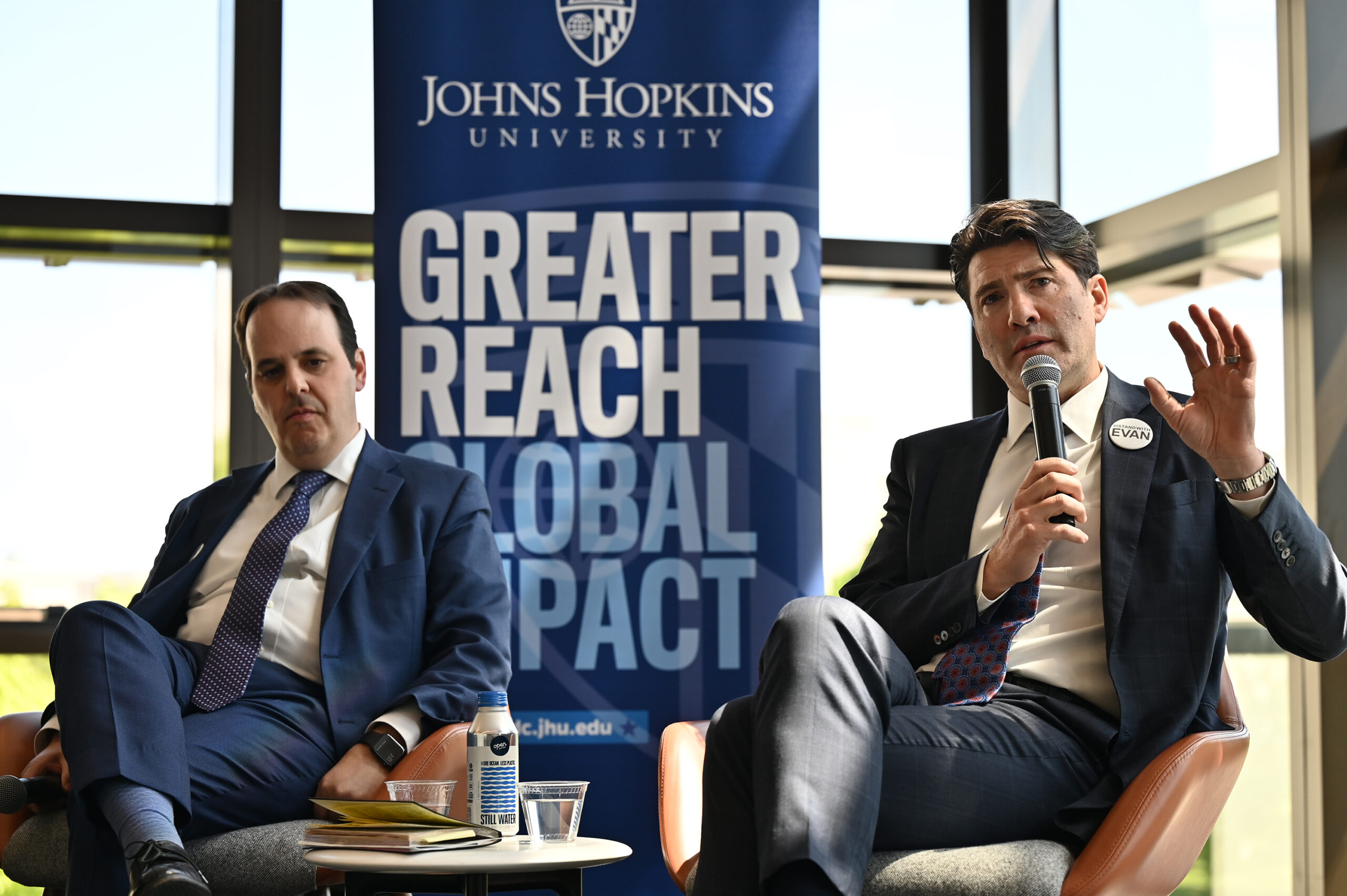How Evan Gershkovich’s legal team is working to get him home
The Wall Street Journal reporter has been jailed in Russia for more than a year, accused of espionage

- Image Kaveh Sardari
For more than a year, The Wall Street Journal reporter Evan Gershkovich has sat in a jail cell in Lefortovo prison in eastern Moscow for 23 hours a day.
The Russian government has detained Gershkovich, an accredited journalist, on charges of espionage—an allegation he, his company, and the U.S. government all deny.
Jason Conti, general counsel and executive vice president at Dow Jones, The Wall Street Journal’s parent company, and David Bowker, a managing partner at WilmerHale, have spent the past year working behind the scenes to secure Gershkovich’s release. They described their efforts during a recent Johns Hopkins University Bloomberg Center event hosted by the Committee to Protect Journalists.
Four workstreams for freedom
Conti grouped Dow Jones’ efforts to obtain Gershkovich’s freedom into four buckets:
- Partnering with local counsel: Since most U.S. law firms pulled out of Russia following its invasion of Ukraine, Dow Jones needed to work with a local firm in the country to not just represent Evan, but to assist with getting him food and packages.
- Managing public relations: The company has worked to establish a drumbeat of media coverage about Gershkovich’s imprisonment to put pressure on the government to act.
- Directing private diplomacy: Dow Jones partners with Bowker, among others, to get Gershkovich’s case in front of world leaders in the public and private sector.
- Supporting Gershkovich’s family: Finally, Conti said, Dow Jones is providing assistance to Evan’s family. “It’s completely out of the blue, totally unexpected, and they need a support mechanism to figure out how to navigate that,” he said.
Petitioning the UN
One of the collaborative efforts between Dow Jones and Bowker was a formal request to a United Nations working group asking for Gershkovich to be declared “arbitrarily detained.”
Involving the UN in cases of journalists imprisoned in authoritarian countries can be more effective than expected, Bowker said.
“They care about it for different reasons. Sometimes they care about their standing within the UN. Maybe they care about the jobs and assignments they get in New York and Geneva,” Bowker said. “It’s also because all the other countries that might help in an effort to get someone someone out.”
While the UN has not responded to their filing, Bowker remains optimistic a decision is coming soon.
“We have been engaged consistently with the staff of the working group, to impress upon them the importance of urgency, the danger to anyone who is in circumstances like Evan’s in Russia, and the need to come out quickly with a decision,” he said. “We would expect news in the coming days, weeks, or months.”